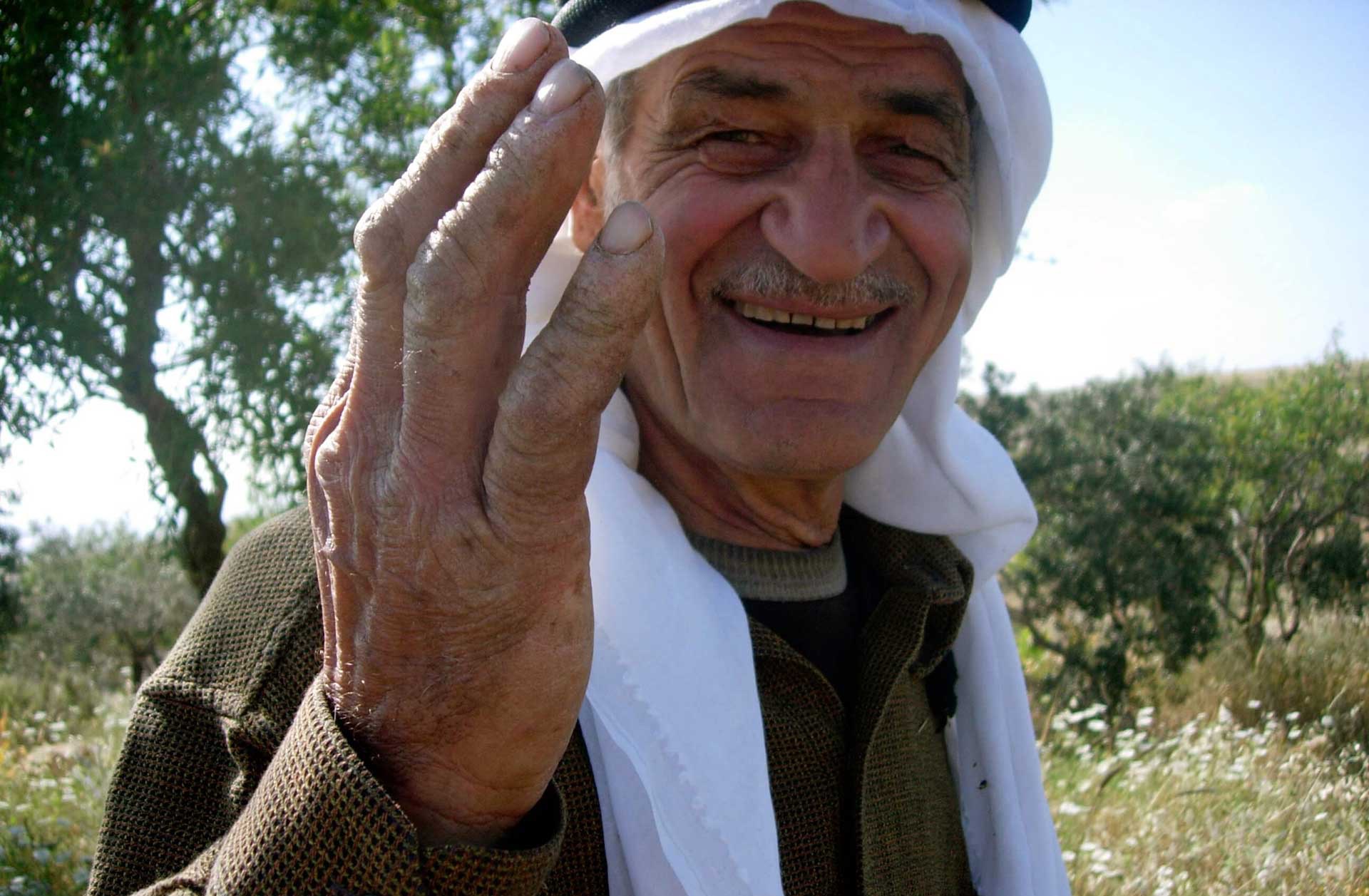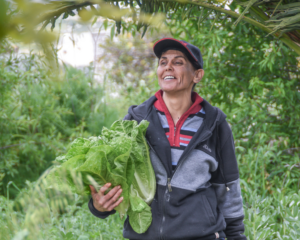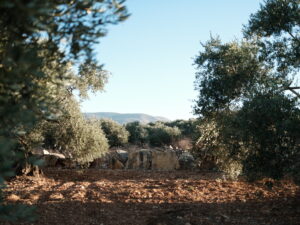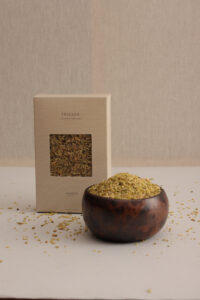A NATURAL ENVIRONMENTALIST
Abu Adnan does not talk about a global movement to save the earth. He doesn’t know much about Greenpeace or the Kyoto Protocol; but he does know everything about keeping his soil healthy and fertile, and the terraces he builds to protect his soil make his mountainous piece of land a visual paradise. A farmer since childhood in his home village of Faqu’a in the Jenin district, Abu Adnan Abed El Salam, who is now 78 years old, has built over 60 terraces in his lifetime, one stone at a time.
When people come to talk to him about the “new” trend of organic agriculture he smiles. “My grandfather, my father, and I have been planting trees all our lives without using any chemicals.” He declares proudly, “I have a thousand olive trees, and I remove all the weeds from under each one of them with these bare hands. I never get tired.” He is aware that he could buy a bottle of herbicide for 70 shekels and get the job done in half a day, but such an idea would be considered criminal in his book.
Using an old sickle and his bare hands, Abu Adnan, bends the weeds, cuts them, and piles them to carry for his sheep. “My sheep don’t eat anything that doesn’t grow in my land. Is there anything more beautiful than the land?” And if you spend a day with him in his fields you would know that he is right. He and his wife, Siham, consider their days working together in the field to be the most romantic experience. They don’t go out to the movies or to fancy dinners, instead they pick wild Za’atar, sage, and grape leaves together. They take water breaks next to their well where Abu Adnan drops a bucket and brings out fresh clear rainwater for his wife to enjoy. Their snack is some grapes, a piece of bread, and za’atar. Depending on the season they eat wild Milk Thistle and Sinari, a wild thorn that has a juicy stem that keeps one’s body hydrated while working in the sun.
The father of six children, Abu Adnan is proud to say that his eldest son, Adnan, who used to work as a day laborer inside Israel has returned to the land and his daughter and her family, have joined the Canaan coop and are planting almonds and olives. Before Canaan started buying Abu Adnan’s olive crop, Abu Adnan says that he came to a point where despite a lifetime of serving the trees he almost stopped loving them because no matter how much he took care of them he knew that at the end of the season he would have nowhere to sell his crops. Today, he says, “I reconnected to my love for the trees and I even planted new ones because I am encouraged and I know my hard work will be appreciated by people from all over the world. I will be rewarded by the end of the season. Why do you think I am spending all my days in the field? Because I want to offer Canaan the same healthy olives I eat in my home and I know there will be people who will buy and love them.” And now his sons and daughter who grew up knowing the smell of soil, the taste of cool rainwater from their father’s well, and the taste of organic olives are continuing the family tradition of growing organic foods. This makes Abu Adnan happy because he says, “the day I die I will die in peace because I know that my children will be taking care of my fields.”
However, Abu Adnan’s relationship to nature is not limited to taking care of his trees. He and his wife don’t carry cell phones and they don’t need watches to tell them when the day begins and when it ends. Their clock is the sun and when it comes up it is time for work and when it starts to fade away they load the weeds on their donkey’s back and stroll down to their village enjoying an evening walk to their home where they cook a hearty dinner and prepare for the next day’s work. They both attribute their health and strength to their lifestyle and what they describe as their “content hearts” because they believe that there is nothing more sacred than the humble meal and the simple life of the earth.





